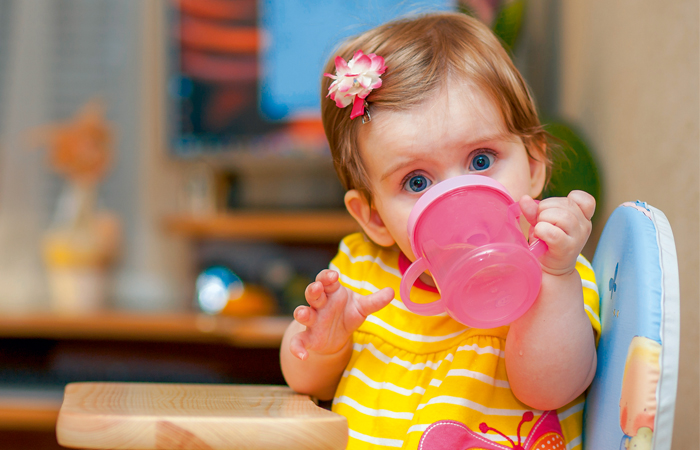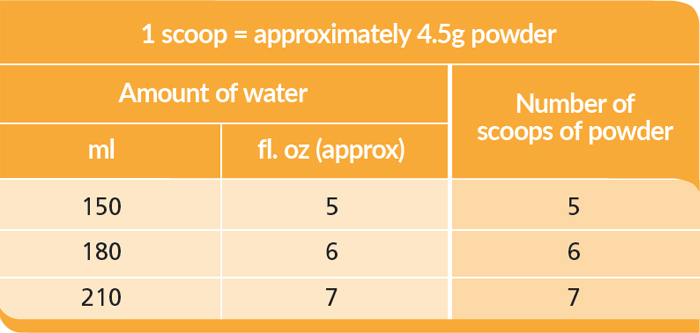12 months plus

Toddler/growing up milks
In 12 months plus
Bookmark
Record learning outcomes
Even with the most careful planning, some toddler diets may still fail to provide sufficient levels of the key nutrients – which is where toddler/ growing up milks can help*

Compared to cows’ milk, toddler/growing up milks contain:
- Much higher levels of iron and vitamin D. Vitamin D is needed for normal growth and bone development, but infants and young children in the UK are only getting 27 per cent of their daily vitamin D needs, according to the 2011 National Diet and Nutrition Survey
- A significant proportion of key vitamins and minerals, such as vitamins A and C
- Increased essential fatty acids
- Some brands also contain prebiotic oligosaccharides and LCPs.
Cows’ milk can be given in combination with toddler milks. For example, cows’ milk could be used in cooking and toddler milk given as a drink.
Fussy eaters
Toddlers are notorious for being fussy eaters. Their likes and dislikes can be a barrier to achieving a nutritionally balanced diet. However, these phases are quite normal and usually only last a short time. Parents should therefore consider their child’s dietary intake over the course of a week, rather than daily, to get a more accurate picture. Any concerned parents should be referred to the pharmacist or a health visitor or GP, if necessary.
How to prepare milks
As before, milks should still be made up as required and not in batches because milk powder is not sterile and can contain harmful bacteria. Remember to always advise parents to check the pack for details of how the milk should be prepared. Some products require water that has been boiled and cooled to 70ºC, while others are prepared with cooler water.
Many toddler/growing up milks are available in ready-to-use bottles or cartons which do not require any preparation before use. Brands offer slightly different advice regarding how long products can be stored or used once opened or prepared – look at products in-store to familiarise yourself with the guidelines.
After a toddler’s first birthday, all liquids should be from a beaker or cup and toddlers should be fully weaned off bottles, so sterilising will no longer be necessary. If a parent does however use a bottle beyond 12 months of age, it is best to continue sterilising.
When to refer
Refer parents with the following concerns to the pharmacist for further advice:
- Toddlers not eating a healthy, balanced diet
- Children drinking too much or too little milk
- Feeding problems (e.g. child is not gaining weight, has reflux or unusual symptoms)
- Children with signs of allergies.
Example on-pack feeding guide**

N.B. After 12 months, it is recommended that children have a minimum of 300ml milk a day (or two dairy servings). Mix one scoop of powder with 30ml (approximately 1fl.oz) of water. Â
*Using toddler/growing up milk is an option for parents – it is not essential.
**Powder weights vary by brand, so always check the instructions on pack.
Â
Â
Now see what the experts say about infant feeding from 12 months plus.
